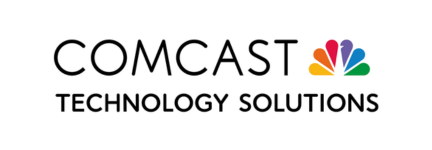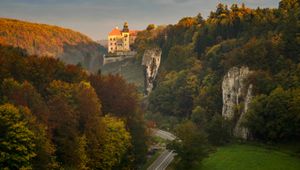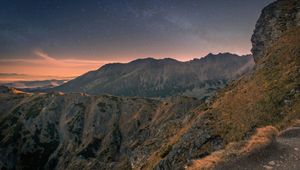
Producing Tomorrow's Producers: Michal Sitek and the Supersonic Train of Production

Michal Sitek is the force behind Lucky Luciano, a boutique production company in the heart of vibrant Warsaw, Poland. With a sharp eye for detail and an unwavering commitment to excellence, Michal specialises in producing commercials while also dabbling in feature films and TV projects.
Over the years, Michal has had the privilege (and occasional headache) of working on a wide range of projects, both locally and internationally. He has produced numerous award-winning campaigns, collecting prestigious accolades like Cannes Lions, Golden Drums, Effie, Eurobest, and more.
As an executive producer, Michal meticulously oversees every aspect of the production process, ensuring each project reaches its fullest potential. Known for his mantra, "Every detail matters," he might just be the only person who thinks there's no such thing as "too much perfection.”
LBB> What advice would you give to any aspiring producers or content creators hoping to make the jump into production?
Michal> It’s really hard to give universal advice. Everybody’s road to success is as different as their character. If I had to give somebody a good tip, it would be to start as a runner or a PA, regardless of what you feel you’re capable of. Manage your expectations but don’t give up easily – I’ve seen many young people get frustrated and jeopardize their careers looking for a way to advance faster. Use every mistake as learning material and be determined and patient. It is a long-term process and there are no 3-step tutorials on TikTok.
LBB> What skills or emerging areas would you advise aspiring producers to learn about and educate themselves about?
Michal> In the age of AI and an ever-changing market, I feel like flexibility is the key. The era of little black books that held your most precious solutions to all the asks is over. All producers, not only young ones, should learn to be curious, flexible, and open to whatever happens in the market. We should educate ourselves about constantly educating ourselves. That train is not waiting for anybody, and it’s supersonic.
LBB> What was the biggest lesson you learned when you were starting out in production - and why has that stayed with you?
Michal> I quickly felt very confident, I knew I had this set of skills that make a good producer and thought I had enough experience. What I didn’t know was that I was so wrong, so I made this mistake I still remember, a long story I don’t want to go into detail about now. Anyway, it taught me to be humble. You can have hundreds of productions in your portfolio and feel like an expert, but you should still expect to make a mistake, not anticipate something, or not notice something important. So, concentrate and be humble, champ!
LBB> When it comes to broadening access to production and improving diversity and inclusion, what are your team doing to address this?
Michal> DE&I isn't just some fancy term — it's a basic human right. We need to keep pushing against those old stereotypes and make spaces where everyone, especially women and minorities, can really thrive. We at Lucky Luciano adopted this code of ethics in the film industry—it’s all about showing respect, embracing diversity, and giving everyone a fair shot in every part of the production process. We believe this and we follow this.
But remember - more women or queer folks behind the camera isn’t what it's all about. Diversity should also shape more of the advertising storytelling; it's not just about having different faces in ads. Agencies and brands need to step up and do more than just feature diverse people—they need to tell their stories and capture their experiences.
LBB> And why is it an important issue for the production community to address?
Michal> It's important for everybody! We should use our businesses to keep growing, for sure, but also for doing good, evolving in a way that's sustainable and making sure we're giving back to our community. advertising is one of the few businesses that can shape people’s opinions and behaviours. We should all be sticking to the triple bottom line: people, planet, profit.
LBB> There are young people getting into production who maybe don’t see the line between professional production and the creator economy, and that may well also be the shape of things to come. What are your thoughts about that? Is there a tension between more formalised production and the ‘creator economy’ or do the two feed into each other?
Michal> On the one hand, these phenomena overlap in some way, but on the other hand, they are completely different. Content creators are a different industry than professional film production, which requires a lot of technical knowledge and a completely different way of thinking about production planning. It's a complicated craft. And anyone can be a content creator. I think that, like in the case of films created in AI, it will technically be part of advertising production, but it is something completely different in its nature.
LBB> If you compare your role to the role of executive producers when you first joined the industry, what do you think are the most striking or interesting changes (and what surprising things have stayed the same)?
Michal> I think it used to be easier back then; now everything changes so quickly, technology, in-house production companies, every year brings new challenges and changes the role of executive producers.
LBB> When it comes to educating producers, how does your agency like to approach this?
Michal> Workshops on the newest tech are a must if you want to stay informed and therefore competitive. I think this is more important now than ever. Keeping your team connected and discussing the newest trends and solutions will also entice an atmosphere of innovation and experimentation that can help get an edge when you get a board that requires an out-of-the-box approach.
Given this, we mustn’t forget about more mundane aspects of the job, like contractual law and intellectual property regulations. This is something that requires more structured education.
We’re also making it our business to manage our impact, so we train our team in environmentally and socially responsible practices. There’s a lot of greenwashing and green propaganda that is often just a way to ease our conscience than actually help. We make it our goal to know them apart and direct our resources to the most effective actions.
LBB> It seems that there’s an emphasis on speed and volume when it comes to content - but where is the space for up-and-coming producers to learn about (and learn to appreciate) craft?
Michal> Craft and quality will always be the ultimate currency. Something to aspire to. But young producers, as they learn the business, will find their niche and decide what kind of content they’d like to be involved in making. Some will take off that career elevator lower and find their satisfaction in less demanding productions; others will try and aspire and press to do the most challenging jobs that end up making advertising history.
There will always be space for those who want to learn craft, but it’s not a single event; it’s a process of getting to know yourself and gradually deciding on how far you’d like to take it. If you eventually strive for greatness, there comes a time when you have to make that space for yourself.
LBB> On the other side of the equation, what’s the key to retaining expertise and helping people who have been working in production for decades to develop new skills?
Michal> I think you have to accept the changes that are inevitable and keep up to date with everything that's happening.
I started when everything was shot on film. I watched the development of digital cameras. Some time ago, we started using virtual production, and now we're looking at AI and calculating our carbon footprint. A lot of changes, and I'm still here.
LBB> Clearly there is so much change, but what are the personality traits and skills that will always be in demand from producers?
Michal> This is a subject that requires a study of its own. There are as many approaches to this as there are producers. I always thought that it’s a combination of traits that makes a good producer, but there is no single correct recipe.
That said, it’s hard to imagine a successful producer who’s not creative, thoughtful, and enthusiastic. Working in a super creative business, our own creativity is always upstaged, but we are the ones who come up with a different set of solutions for every job. It also requires ingenuity to think outside the box and enthusiasm to avoid falling into a rut of old habits and comfortable solutions.
And don’t overlook the fact that our job is very close to the hospitality business. If you have an attentive nature, if you really listen to others and care about them, you might make a good producer.















